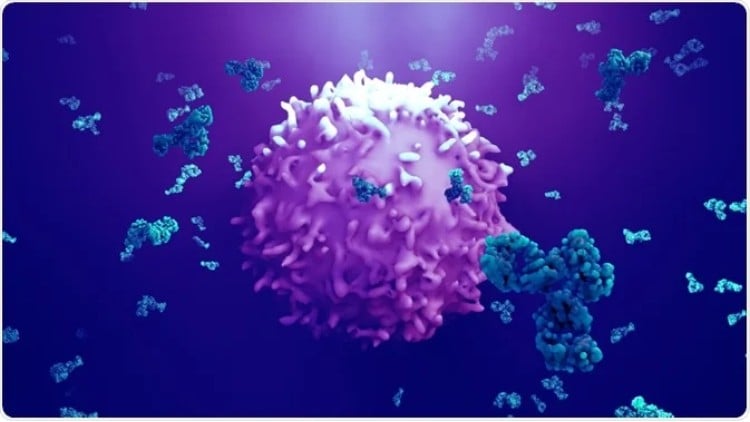
Explore the types, structure, and biological roles of antigens in the immune system
⏱️ Length: 3.6 total hours
⭐ 4.25/5 rating
👥 2,736 students
🔄 May 2025 update
Add-On Information:
“`html
Note➛ Make sure your 𝐔𝐝𝐞𝐦𝐲 cart has only this course you're going to enroll it now, Remove all other courses from the 𝐔𝐝𝐞𝐦𝐲 cart before Enrolling!
- Course Overview:
- This module thoroughly explores diverse antigen molecular structures and how these architectures dictate their recognition and interaction with the immune system, revealing antigenic diversity’s profound implications.
- Unpack the critical distinction between immunogenicity and antigenicity, clarifying why some molecules provoke robust immune responses while others only bind without full activation—fundamental for vaccine and allergy research.
- Delve into an expanded spectrum of antigen types: neoantigens, tumor-specific antigens, microbial pathogen-associated molecular patterns (PAMPs), and common allergens, appreciating their unique origins and immunological significance.
- Examine the pivotal role of Major Histocompatibility Complex (MHC) molecules in antigen presentation, understanding how this essential mechanism bridges antigen detection with adaptive immune system activation.
- Investigate structural nuances of B cell and T cell epitopes, differentiating linear and conformational forms, and how these distinct features guide their recognition by immune receptors and antibodies.
- Understand haptens and their requirement for conjugation to larger carrier proteins to become fully immunogenic—a principle vital for diagnostic development and synthetic vaccine design.
- Explore the dynamic interplay between various antigens and key immune cells, including specialized antigen-presenting cells (APCs) and diverse lymphocyte populations, orchestrating sophisticated defense mechanisms.
- Gain insight into antigen biology’s extensive clinical relevance, from its role in vaccine efficacy and autoimmune disease pathogenesis to its application in allergy management and cutting-edge cancer immunotherapy.
- Requirements / Prerequisites:
- Foundational Biological Concepts: Basic understanding of cell biology, molecular biology (e.g., proteins, DNA), and fundamental biological processes provides a beneficial context.
- General Chemistry Knowledge: Familiarity with basic chemical principles, particularly molecular structure and interactions, aids in grasping antigen-antibody binding dynamics.
- Introductory Immunology Exposure: While not mandatory, rudimentary grasp of immune cell types and innate vs. adaptive immunity distinction enriches learning.
- Analytical Mindset: Eagerness to analyze complex biological systems and molecular interactions is advantageous.
- No Advanced Technical Skills: Accessible without prior expertise in advanced mathematics, programming, or specialized lab techniques.
- Skills Covered / Tools Used:
- Conceptualizing Molecular Interactions: Develop ability to visualize and interpret precise molecular engagements between antigens and immune receptors, critical for understanding specificity.
- Analytical Reasoning in Immunological Contexts: Enhance capacity to critically evaluate antigen-driven immune responses and predict potential physiological outcomes.
- Problem-Solving for Immunological Disorders: Apply knowledge of antigen structure and function to conceptualize mechanisms of infectious diseases, autoimmunity, allergies, and cancer.
- Critical Assessment of Immunotherapeutic Strategies: Gain insights into principles governing immunotherapies by understanding the specific antigenic targets they leverage.
- Scientific Information Synthesis: Cultivate skill to integrate diverse immunological concepts, linking molecular details of antigen processing and recognition to broader immune regulation.
- Interpretation of Biological Diagrams: Improve ability to understand and derive meaning from diagrams illustrating complex biological pathways, such as antigen presentation or immune cell signaling.
- Benefits / Outcomes:
- Deepened Understanding of Immune Specificity: Attain profound comprehension of how the immune system precisely identifies and responds to a vast array of antigens, foundational to protective immunity and self-tolerance.
- Enhanced Perspective on Disease Mechanisms: Develop an informed viewpoint on molecular and cellular pathogenesis of infectious conditions, autoimmune disorders, and cancer’s sophisticated evasion tactics.
- Informed Engagement in Vaccine Science: Acquire essential knowledge to understand core principles of effective vaccine design, including antigen selection, preparing you to appreciate current global health challenges.
- Foundation for Advanced Immunological Research: Establish a robust conceptual framework for further studies or research in specialized fields like vaccinology, oncology, or allergology, where antigen biology is central.
- Critical Appreciation of Immunodiagnostics: Gain capacity to critically evaluate mechanisms behind various immunodiagnostic techniques and emerging immunotherapeutic agents manipulating antigenic responses.
- Improved Scientific Communication Skills: Equip yourself with precise terminology and a solid conceptual understanding to articulate complex immunological ideas related to antigens.
- Empowered Health Literacy: Become a more knowledgeable and discerning individual concerning immune responses, disease prevention, and novel medical interventions.
- PROS:
- High Relevance: Directly addresses critical areas in current biomedical science, including vaccine development, autoimmune research, and cancer immunotherapy.
- Concise and Efficient: Delivers substantial foundational understanding of a complex topic within a manageable 3.6-hour duration.
- Robust Peer Endorsement: A strong 4.25/5 rating from over 2,700 students indicates high quality and learner satisfaction.
- Up-to-Date Content: The May 2025 update ensures learners receive the most current scientific information and perspectives.
- Accessible Introduction: Provides an excellent entry point for those new to advanced immunology or seeking to refresh foundational knowledge.
- CONS:
- Potential for Limited Depth: The condensed nature of the course might preclude exhaustive exploration of highly specialized antigenic structures or intricate, less common antigen processing pathways.
“`
Learning Tracks: English,Teaching & Academics,Online Education
Found It Free? Share It Fast!